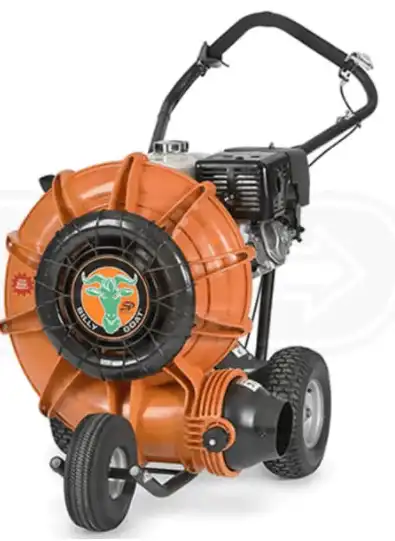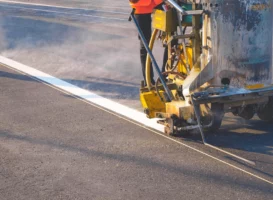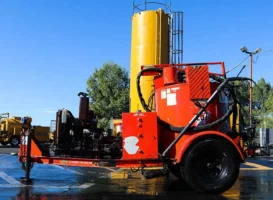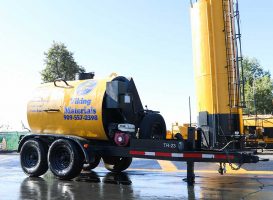As a fellow outdoor enthusiast, if you’re here, chances are you’ve got your hands on a powerful Billy Goat Blower or are thinking about it. These blowers are fantastic for clearing leaves and debris. However, safety should always come first. In this guide, we’ll explore the basic concept of a Billy Goat Blower. You need to know about the most common safety mistakes people make while using them. Fear not, though—we’ve got solutions in the following article for each mistake to keep you safe and sound-
The Basic Concept of A Billy Goat Blower
Before we jump into safety, let’s understand what we’re dealing with. A Billy Goat Blower is like a heavy-duty leaf wrangler. Strong air currents are created by a powerful motor, which is then used to push away garbage and leaves. Maintaining grass and yard saves time.
Safety Mistakes and Solutions
Protect Your Eyes
Shield your eyes with proper safety goggles. Keep sunglasses for style, but not for safety. Prevent painful surprises by wearing the right eye protection.
Mistake
You think sunglasses are enough to protect your eyes from flying debris.
Solution
Invest in high-quality safety goggles that wrap around your eyes. They’ll shield you from both direct impact and side debris.
Example: You’re clearing leaves when a twig suddenly shoots out of the blower and hits your sunglasses. Luckily, they don’t break, but it’s a close call.
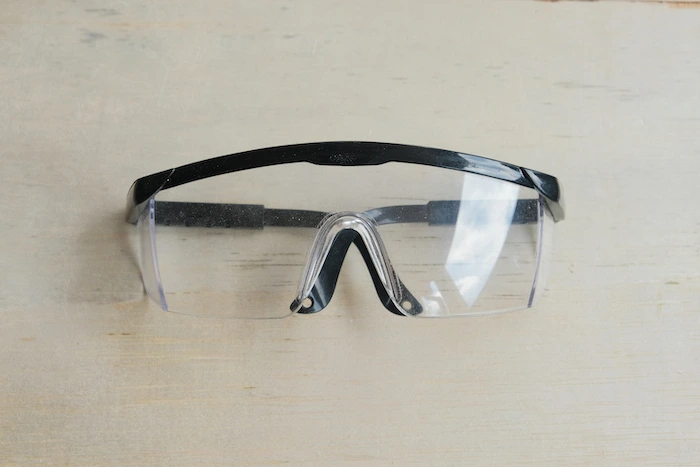
Hearing Protection
Guard your hearing with earmuffs or earplugs. Don’t underestimate engine noise; it can harm your hearing. Prioritize your ears. They deserve protection too!
Mistake
You underestimate the blower’s noise level and skip ear protection.
Solution
Wear earplugs or earmuffs to guard against hearing damage caused by prolonged exposure to loud engine noise.
Example: After a long day of blowing leaves, you notice a ringing in your ears. Potential hearing damage is indicated by this.
Inspect the Area of Work
Always check the work area before starting the blower. Remove any potential hazards like rocks or debris. For safe and efficient functioning, clear the way.
Mistake
You don’t bother clearing the area of potential hazards before starting.
Solution
Walk through the area and remove stones, toys, or any objects that the blower could launch.
Example: You accidentally blow a small rock into your neighbor’s window, leading to an awkward and costly situation.
Minimize Dust
Protect your lungs with a dust mask or respirator. Inconvenience and health problems might result from breathing in dust. Work comfortably and keep the particles out of your airways.
Mistake
You operate the blower in dusty conditions without respiratory protection.
Solution
Use a dust mask or respirator to prevent inhaling dust and allergens.
Example: While clearing leaves in a dry, dusty area, you start coughing and sneezing due to the airborne particles.
Limited Vibration
Reduce discomfort with anti-vibration gloves. Long-term vibrations can make you tired. Enjoy a more comfortable experience with the right gloves.
Mistake
You ignore the blower’s vibration, which can cause hand and arm strain.
Solution
Wear anti-vibration gloves to reduce the impact on your hands and arms.
Example: After a day of using the blower, you experience numbness and discomfort in your hands and arms.
Maintenance Safety
Observe the maintenance instructions provided by the manufacturer. Regularly clean the air filter and check fuel levels.
Ensure your blower runs smoothly with routine maintenance.
Mistake
Neglecting regular maintenance, such as cleaning air filters and checking fuel levels.
Solution
Follow the manufacturer’s maintenance guidelines to ensure the blower runs smoothly and safely.
Example: Midway through a job, the blower sputters and shuts off due to a clogged air filter. You’re still dealing with a jumbled mess.
Safety of Equipment
Inspect your blower before each use. Check for any broken or loose pieces. A quick check ensures safe and efficient operation.
Mistake
Assuming the blower is always safe without checking for loose parts or damaged components.
Solution
Before each use, inspect the blower for loose screws, damaged blades, or worn-out parts. Replace or repair as needed.
Example: During operation, a loose screw comes undone and flies out, narrowly missing your leg.
Role of Viking Material
At Viking Material, we’re all about keeping your outdoor experience safe and enjoyable. Our range of equipment, including the mighty Billy Goat Blower, is designed with your safety in mind. Our comprehensive user manuals and safety guidelines will ensure you make the most of your equipment. You do not have to compromise on safety.
Conclusion:
If you put safety first, using a Billy Goat Blower may be an easy task. You can have a safer and more effective outdoor experience by avoiding typical blunders like skipping ear protection, forgetting to wear eye protection, and neglecting maintenance. Keep in mind that finishing the job responsibly and safely is just as important as doing it. Have fun blowing and be careful out there! For more additional info, go through the FAQs section below:
FAQs:
-
- Questioner’s Concern: Sometimes safety goggles can be uncomfortable, and I have a pair of sunglasses.
- Answer: While sunglasses offer some protection, safety goggles are specially designed to shield your eyes from flying debris. They provide better coverage and are a safer choice when using a Billy Goat Blower.
Questioner’s Concern: I’m not very mechanically inclined. Do I need to check the blower often?
Answer: No mechanical background is necessary. A quick check before each use is usually enough. Look for any visibly broken components, loose screws, or bolts. Accidents can be avoided, and it only takes a few minutes.
Questioner’s Concern: What if I need to clear leaves during a light rain?
Answer: The blower should not be used when it is raining. Wet leaves can clog the blower, and operating electrical equipment in wet conditions is not safe. Wait for a dry day to work.
Questioner’s Concern: I’ve used the blower without ear protection before, and it seemed fine.
Answer: Even though the noise may not bother you immediately, prolonged exposure to loud engine noise can harm your hearing over time. Ear protection is a simple way to prevent potential hearing damage. Your hearing is precious; protect it!

